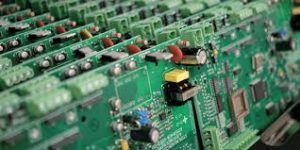Can you explain the role of automated dispensing in Printed circuit assembly services?
role of automated dispensing in Printed circuit assembly services
Automated dispensing plays a crucial role in enhancing efficiency, precision, and reliability in Printed Circuit Assembly (PCA) services. This technology involves the automated application of various materials, such as solder paste, adhesives, conformal coatings, and encapsulants, onto printed circuit boards (PCBs) with high accuracy and repeatability. The role of automated dispensing in PCA services encompasses several key aspects, each contributing to the overall quality and performance of electronic assemblies.
One of the primary functions of automated dispensing is to accurately deposit solder paste onto PCB pads during surface mount technology (SMT) assembly processes. Solder paste dispensing is a critical step in SMT assembly, as it facilitates the attachment of surface-mount components to PCBs by forming solder joints during reflow soldering. Automated dispensing systems precisely control the volume and distribution of solder paste, ensuring consistent solder deposition across all PCB pads and component footprints.
Moreover, automated dispensing enables the precise application of adhesives for component mounting and mechanical stabilization in PCA services. Adhesives are commonly used to secure components to printed circuit assembly services, prevent component movement during assembly processes, and enhance the mechanical integrity of electronic assemblies. Automated dispensing systems accurately dispense adhesives in predefined patterns and quantities, minimizing waste and ensuring reliable component adhesion.

Can you explain the role of automated dispensing in Printed circuit assembly services?
Another important role of automated dispensing in PCA services is the application of conformal coatings to protect PCBs from environmental factors such as moisture, dust, chemicals, and temperature extremes. Conformal coatings help prevent corrosion, electrical shorts, and other reliability issues that can compromise the performance and longevity of electronic assemblies. Automated dispensing systems apply conformal coatings evenly and uniformly, covering PCB surfaces and components with a thin protective layer that conforms to the contours of the assembly.
Furthermore, automated dispensing facilitates the encapsulation of sensitive components or entire PCB assemblies in protective materials, such as epoxy resins or potting compounds. Encapsulation provides additional protection against mechanical shock, vibration, and moisture ingress, safeguarding electronic assemblies in harsh operating environments. Automated dispensing systems accurately dispense encapsulants to encapsulate components or assemblies while minimizing voids and ensuring complete coverage.
In addition to improving the quality and reliability of electronic assemblies, automated dispensing enhances the efficiency and productivity of PCA services. By automating material application processes, manufacturers can reduce manual labor requirements, minimize human error, and increase throughput. Automated dispensing systems operate continuously and consistently, enabling high-speed, high-precision material deposition with minimal downtime and setup time.
Moreover, automated dispensing offers flexibility and adaptability to accommodate a wide range of PCB designs, component geometries, and assembly requirements. Programmable dispensing parameters allow manufacturers to customize material deposition patterns, volumes, and dispensing speeds to meet the specific needs of each assembly. This flexibility enables efficient production of diverse electronic assemblies while maintaining consistent quality and performance.
In conclusion, automated dispensing plays a multifaceted role in Printed Circuit Assembly services, encompassing solder paste deposition, adhesive application, conformal coating, and encapsulation processes. By automating material application tasks, automated dispensing systems enhance efficiency, precision, and reliability in PCA services while optimizing production throughput and flexibility. As electronic assemblies become increasingly complex and demanding, the role of automated dispensing continues to grow in importance, driving advancements in assembly technology and ensuring the continued evolution of electronic manufacturing processes.










Post Comment